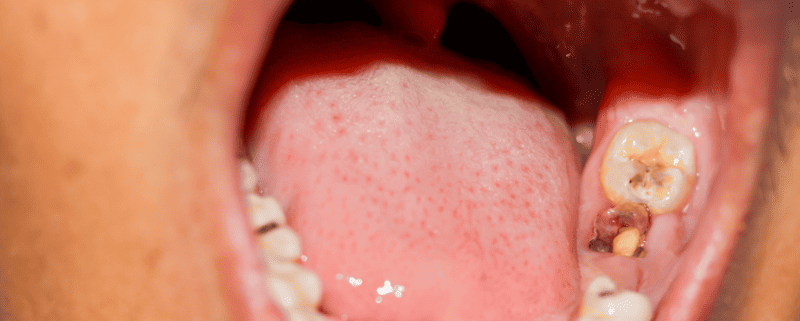Can You Get Braces With Cavities? Unraveling the Truth
Last Updated on October 18, 2023 by Gio Greenard
Cavities and gum issues can hinder the process of getting braces. Since cavities compromise the tooth’s integrity and braces can intensify them due to challenges in cleaning, addressing these cavities prior to orthodontic treatment is crucial.
Equally advanced tooth decay could necessitate tooth removal, as braces may place excessive strain on compromised teeth. Therefore, it’s essential to address or extract significantly decayed teeth prior to initiating orthodontic procedures.
Approximately 91% of adults aged 20-64 have dental caries in their permanent teeth.
What Is The Impact Of Cavities On The Process Of Getting Braces?
Braces require good oral hygiene to keep teeth and gums healthy. Cavities can make it harder to maintain cleanliness due to extra spaces from braces where food and bacteria can gather. Untreated cavities can lead to more dental issues. Therefore, it’s essential to address any cavities before getting braces.
Untreated cavities can lead to complications during orthodontic treatment.
The Role Of Fluoride In Preventing Cavities During Orthodontic Treatment
Let’s discuss the role of fluoride in cavity prevention, especially during orthodontic treatment.
Understanding Fluoride
Fluoride helps in preventing cavities. This is primarily due to its interaction with tooth enamel. It aids in remineralization, a process where minerals are replenished in the enamel after being dissolved by plaque and sugars. Fluoride accelerates this process and strengthens the enamel, acting as a protective layer against cavities.
When fluoride interacts with tooth enamel, it promotes remineralization. Therefore, fluoride effectively creates a barrier that helps prevent cavities.
Fluoride and Orthodontic Treatment
During orthodontic treatment, maintaining oral health can be difficult due to the accumulation of plaque around braces. Fluoride assists by preventing cavities. Regular use of fluoride through toothpaste, mouthwash, or professional treatments can provide a defense against cavities.
Addressing Dental Anxiety When Dealing With Cavities And Braces
It’s common to feel anxious about orthodontic procedures and dealing with cavities. Dental anxiety can be stressful, but it’s necessary to confront these worries for the sake of oral health. Many adults and children have similar fears.
Education is a key to reducing dental anxiety. Gain knowledge about braces and dental cavities; visit reliable dental websites, read relevant literature, and consult your orthodontist.
- Braces procedure: Learn how braces are installed, how they function, and what happens during adjustment appointments.
- Understanding cavities: Comprehending the causes, treatment of dental cavities, and their effect on braces can ease apprehension.
Openly communicate your fears with your orthodontist, as they are trained to help patients feel at ease.
Around 42% of children aged 2-11 have dental caries in their primary teeth.
Conclusion
Securing braces over a mouth full of cavities is akin to building your dream house on shaky grounds. Orthodontists, like architects, appreciate a good, solid foundation. Cavities, put simply, are tooth decay caused by various factors mostly revolving around dental hygiene and nutrition. However, introducing braces into this equation can exacerbate the situation.
Take the Next Step Towards a Beautiful Smile with Beach Braces!
Understanding the relationship between cavities and braces is crucial for your dental health. At Beach Braces, we prioritize your oral well-being and ensure that you’re on the right path to achieving the perfect smile. If you have concerns about cavities or are considering braces, don’t hesitate. Schedule a consultation with our expert orthodontist today and let us guide you through a seamless and healthy orthodontic journey. Your dream smile awaits, and we’re here to make it a reality!
🔗 Book Your Appointment with Beach Braces Now!

Dr Patti Panucci attended the University of Louisville School of Dentistry for four years, where she graduated with a DMD degree (May 2000) among the Top 10 in her class. Following that, she headed west to Los Angeles to complete her three-year residency at one of the top-ranked orthodontic programs in the country – the University of Southern California.
Along with her certificate in orthodontics, Dr. Panucci earned a master’s degree in craniofacial biology. During those three years, she fell in love with Southern California beach life and decided that this was where her future lay.





Leave a Reply
Want to join the discussion?Feel free to contribute!